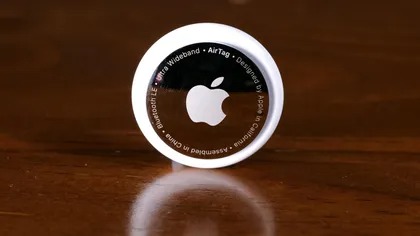
Companies join forces to tackle unwanted tracking via Apple’s gadget and similar devices such as Tile
On Tuesday, Apple and Google collaborated to prevent unauthorized tracking through Bluetooth-enabled devices like AirTags. They presented a proposal to establish guidelines for detecting covert surveillance, which these gadgets were designed to prevent, such as locating lost items like keys and luggage.
Samsung, the world’s largest vendor of Android smartphones, as well as companies like Tile, Chipolo, and Pebblebee, which manufacture tracking devices similar to AirTag, also support this idea.
Since its launch in 2021, the AirTag, which costs $30, has gained popularity. However, law enforcement officials have reported instances of misusing these devices, such as stalkers using them to monitor former partners and others who are unaware that they are being tracked.
According to Dave Burke, Google’s Vice President of Engineering for Android, while Bluetooth trackers have provided significant advantages to users, they also pose the risk of unauthorized tracking, which necessitates collective efforts by the industry to address this issue.
Apple has also acknowledged the possibility of the AirTag being exploited for nefarious purposes. As a result, the corporation has implemented several safeguards, such as notifications that alert iPhone users if an AirTag that is not linked to their device is in their vicinity and an application that identifies unwanted AirTag monitoring for Android users.
Apple and Google aim to take additional steps to tackle surveillance by introducing a fresh industry standard. The firms intend to finalize the proposal by the end of this year, and they have submitted a draft of the solution to the Internet Engineering Task Force (IETF), a body responsible for developing internet standards. The proposed solution will be distributed via software updates to iPhones and Android devices.
Erica Olsen, the Senior Director of the National Network to End Domestic Violence’s Safety Net Project, commended the initiative to establish an industry standard, which she believes will benefit survivors of abusive relationships and others who have been subjected to covert surveillance. Olsen stated that “these new standards will limit the potential for the misuse of this technology and alleviate the burden on survivors in identifying unwarranted trackers.”
The draft proposal will be open for comments from concerned parties for the next three months, following which Apple and Google will evaluate and integrate the feedback into the plan.



